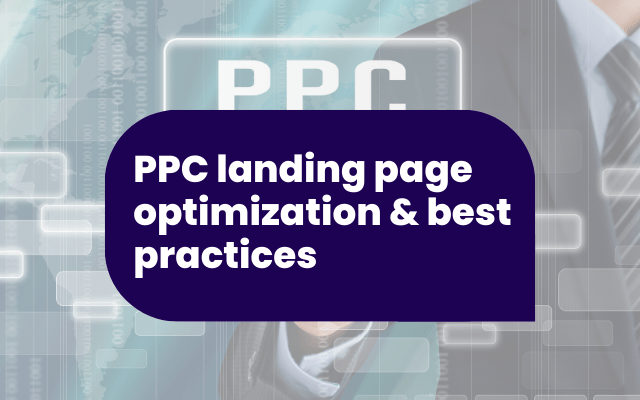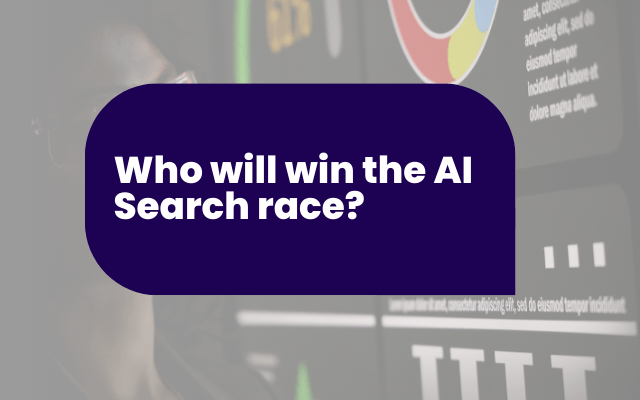Our team at ASK BOSCO had the privilege of attending BrightonSEO San Diego, held alongside HERO Conf. BrightonSEO is one of the world’s biggest search marketing conferences, attracting thousands of digital leaders, agencies and brands from across North America, Europe and Asia. Combine that with HERO Conf, the leading PPC event, and we enjoyed two days filled with practical insights, new ideas and some lively debates about the future of search.
TL;DR – BrightonSEO San Diego key learnings:
- AI empowers marketers, with the best results coming from combining human strategy and machine efficiency.
- Budgets need rebalancing, shifting spend from PPC to SEO and cutting waste where possible.
- Processes beat tools, as success depends on the systems you build rather than any single platform.
- New platforms matter, with Reddit now a key player in search that must be part of SEO strategy.
ASK BOSCO’s Session: Time to Break the PPC Habit?
We were proud to see our Director of Digital Performance, Dan Akers, take to the stage to talk about one of the big questions facing marketers right now. As AI-driven search interfaces such as Google’s SGE, ChatGPT and other conversational platforms change how people discover information, what does that mean for the balance between SEO and PPC?
Dan’s argument was that it may be time to rethink our industry’s heavy reliance on paid media and instead recognise how SEO is uniquely positioned to thrive in this new landscape.
His main points were:
- PPC will always have a place but it is becoming increasingly expensive and crowded.
- Organic search offers long-term growth, and AI has the power to accelerate SEO efforts rather than replace them.
- By looking at the data, brands can build a solid case for moving some budget away from paid search into organic strategies that deliver ongoing returns.
This was not a talk built on theory. Dan shared a clear, data-led case for why reallocating spend makes sense, along with practical steps for making SEO more efficient with the help of AI. From content generation to predictive modelling, the opportunities are there for marketers who are prepared to adapt.
The conversations afterwards reflected a common theme we hear from clients too: advertising costs are climbing and becoming unsustainable, while organic deserves a much bigger role in the mix. To see Dan’s full talk please head here.
Adaptify: Busting the AI Content Myth
Another interesting session came from Adaptify, who addressed a question many people are still wrestling with: can AI content really rank?
Luke Heinecke, Adaptify’s CMO, shared findings from a huge experiment that looked at more than 287,000 AI-generated articles. The results were eye-opening:
- 93,000 articles ranked on Google
- Almost one in three pieces of content (32%) made it into search results
- This success rate is six times better than the industry average of around 5%
Luke argued that AI content is not inherently bad. The difference lies in the systems and processes behind how it is produced… .and it’s no longer human versus AI but ‘system versus system’.
Adaptify outlined the methods that drove their success, including:
- Optimising for extraction: Short, flashcard-style answers of 40–60 words made it easier for AI overviews to pick up content and led to a 43% increase in CTR.
- Matching intent: Understanding what searchers actually want, whether information, comparisons or direct solutions, mattered more than keywords.
- Building authority: Clear authorship and credentials were critical for trust. Content without visible authors simply stopped ranking.
- Covering entities properly: Content had to feel complete, covering all relevant aspects of a subject to be considered valuable by Google’s AI.
- Starting with the conclusion: Giving the answer up front provided instant value and better matched user intent.
- Using multiple AI models for quality control: One model wrote, another reviewed, and a third checked again, mimicking the benefits of a human editorial team.
- Creating infographics as proof of work: AI-generated visuals boosted engagement and gave content more credibility.
The session demonstrated that AI content can compete, provided there is a robust process and focus on quality.
BrandPilot AI: Tackling Waste in Paid Search
Another highlight came from BrandPilot AI, with Chief Revenue Officer John Beresford presenting on a topic that will resonate with any advertiser: wasted spend in paid search.
With global Google ad spend now topping $250 billion a year, even small inefficiencies can drain huge amounts of budget. BrandPilot’s tool, AdAi, identifies hidden flaws in branded keyword auctions where businesses often overpay without realising.
By uncovering this wasted spend, brands can put that money back into higher performing campaigns, improving ROI without increasing overall budgets.
Beresford’s message was simple but powerful: “Advertisers don’t need to spend more to grow. They need to spend smarter.”
The talk aligned well with the wider themes of the conference. Whether it was our discussion of rebalancing PPC and SEO, Adaptify showing what is possible with AI content, or BrandPilot highlighting inefficiencies in ad auctions, the common thread was about working more efficiently and getting the most from budgets.
Ross Simmonds’ Keynote: Why Reddit Cannot Be Ignored
One of the most talked about sessions was the day 1 keynote from Ross Simmonds who tied a lot of these threads together with a simple message: it is time to put the “marketing” back into content marketing.
Ross argued that over the years marketers have lost sight of the basics. Many have forgotten about the importance of research, the psychology behind why people buy and the need to actively distribute content rather than just publish it. Too often content marketing has been reduced to little more than blog posts.
One of his most striking points was the growing role of Reddit in search visibility. He shared new data showing the impact Reddit for Business is already having on the SERPs. Google is pulling Reddit threads directly into results and using them in AI-driven overviews, making the platform impossible to ignore for SEO.
Ross also showed tactical examples of how brands can use Reddit to drive results, while reminding everyone that the key is authenticity. Communities on Reddit can spot spam a mile off. Success comes from taking the time to participate properly, add value and build trust.
He also highlighted tools such as HeyGen, ElevenLabs, Distribution.ai and ChatGPT, which can help marketers do more with less when it comes to creating and distributing content.
The reaction to his talk underlined how many people are now rethinking their approach to distribution and visibility. As Ross said, content marketing today is not just about what you publish but where and how you put it in front of people.
Key takeaways from BrightonSEO San Diego:
Looking back on BrightonSEO San Diego, a few themes stood out for us:
- AI is not replacing marketers, it is empowering them. The best results come from combining human strategy with machine efficiency.
- Budgets need to be rebalanced. Whether that is shifting spend from PPC to SEO, or reducing waste in branded search campaigns, smarter allocation is key.
- Processes beat tools. Success does not depend on one model or platform, but on the systems you put around it.
- New platforms count. With Reddit now playing such a visible role in Google results, SEO strategies must expand beyond websites and blogs.
We are proud to have been part of those conversations in San Diego and are looking forward to continuing them with our clients and partners. We’ll also be heading to BrightonSEO in Brighton, UK in October 2025 – so hope to see you there!




